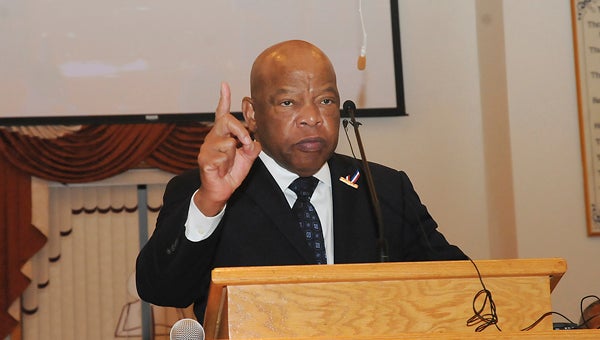Evans says health care switch would be chaotic
Published 6:52 pm Monday, February 3, 2014
Selma officials are largely against switching from the city’s current health care plan with Blue Cross and Blue Shield of Alabama to the Affordable Care Act Marketplace, even though it would save $1 million.
The Selma City Council reconsidered the switch Thursday when Blue Cross and Blue Shield of Alabama employees presented financial estimates for a switch to the Affordable Cart Act Marketplace.
The Affordable Care Act Marketplace allows uninsured Americans to shop for healthcare plans. Two employees could pay different amounts for the same coverage based on income.
In October, Selma City Councilman Cecil Williamson proposed a switch to the Affordable Care Act Marketplace to save the city an estimated $700,000. The city is projected to spend approximately $1.46 million in 2014 for its group plan through Blue Cross. Instead of paying for a group plan, Williamson proposed the city provide a health care stipend for each of the city’s approximately 300 employees to seek a plan through the marketplace.
All plans through the marketplace would also be through Blue Cross and Blue Shield of Alabama as they are the only marketplace provider in Dallas County.
“All I’ve said from the beginning is that this is a way for the city to save a sizeable amount of money,” Williamson said during Thursday’s council meeting. “In no way am I trying to decrease the quality of the plan. In fact, I would prefer that we find a plan that is similar to the one we currently have.”
After spending three months researching cost differences, Blue Cross and Blue Shield representatives echoed Williamson’s initial hypothesis — city government could save by switching to the marketplace. Though, all estimates were for individual coverage.
Blue Cross and Blue Shield representative Randy Tucker said the city would spend approximately $460,000 if it switched to the Affordable Care Act marketplace, which would be a savings of approximately $1 million compared to the current plan.
It wouldn’t be a permanent switch, Williamson said. Instead the city would switch back to group coverage, similar to its current plan, at the end of 2015. By switching, the city would avoid a more than $500,000 penalty assessed by the Affordable Care Act on certain employers for not providing health coverage.
“I look at this as a shot-term way for the city to save money,” Williamson said.
Selma Mayor George Evans spoke out against the switch after hearing the financial estimates, saying the process would be too cumbersome and confusing for employees.
“It would cause all kinds of drama with employees,” Evans said. “When you send over 300 employees out there to do their own shopping for a health insurance plan, it would cause all kinds of chaos.”
Selma City Councilwoman Susan Keith also expressed her opposition to a switch.
“There are just too many unknowns with the Affordable Care Act Marketplace,” Keith said. “There are people who want it repealed and there have been a number of problems with people being able to actually get coverage. I could not, in good conscious, vote to do that to our employees.”
Though the switch would be complicated and tedious, Williamson stands firm on his original opinion.
“It’s a complicated issue, but switching would literally save the city $1 million,” Williamson said. “I think it would be beneficial for the city to switch, but I am not going to pursue it anymore if I can’t get more support.”



